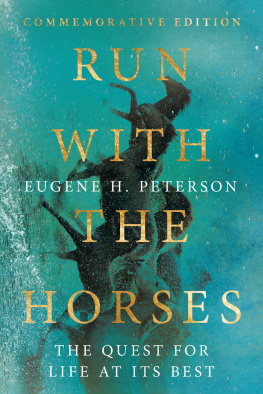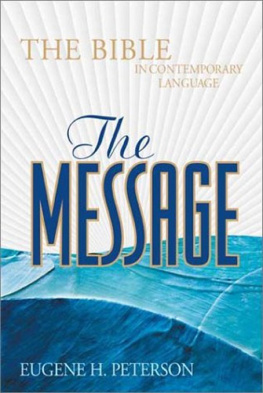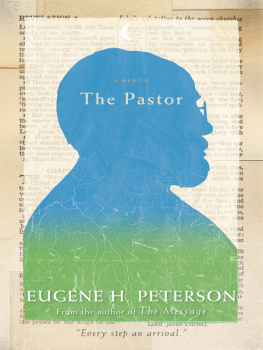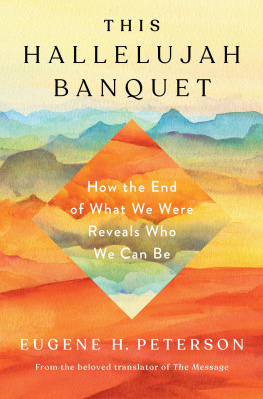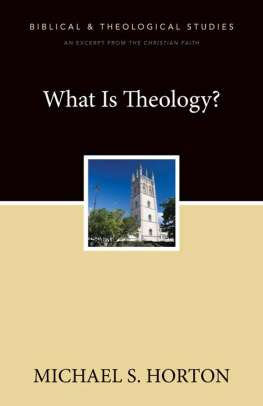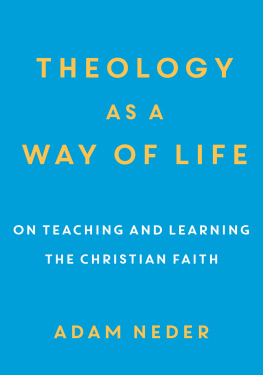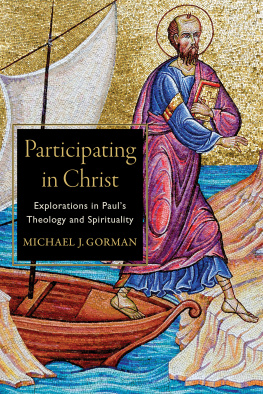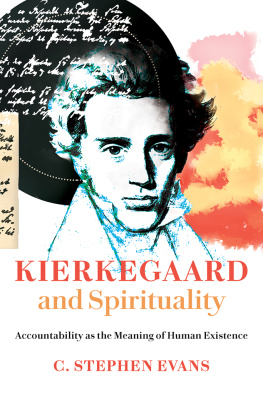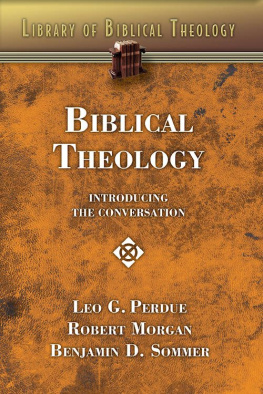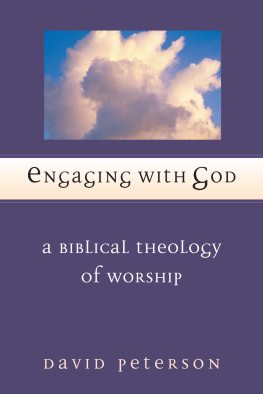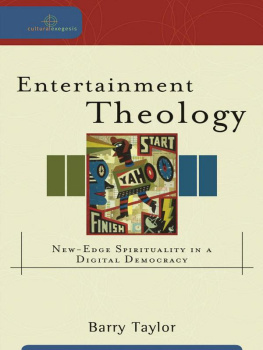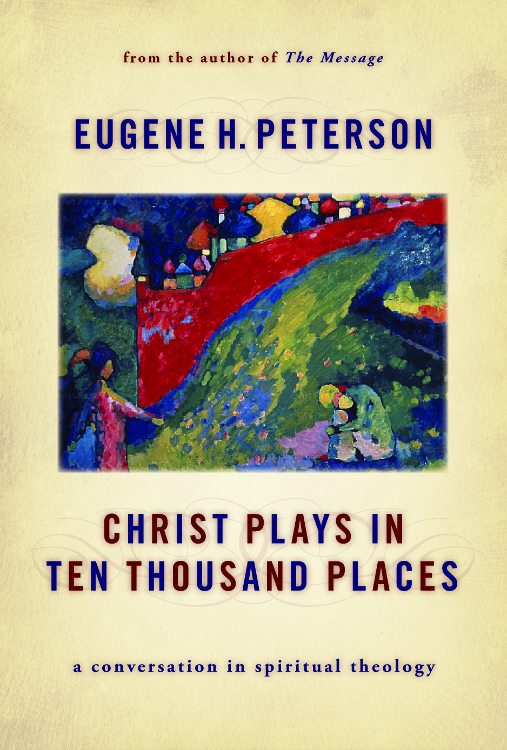
... for Christ plays in ten thousand places,
Lovely in limbs, and lovely in eyes not his
To the Father through the features of mens faces.
GERARD MANLEY HOPKINS
Christ Plays in Ten Thousand Places
A CONVERSATION IN SPIRITUAL THEOLOGY
Eugene H. Peterson
William B. Eerdmans Publishing Company
Grand Rapids, Michigan / Cambridge, U.K.
Wm. B. Eerdmans Publishing Co.
2140 Oak Industrial Drive N.E., Grand Rapids, Michigan 49505 /
P.O. Box 163, Cambridge CB3 9PU U.K.
Published in association with the literary agency of
Alive Communications, Inc.,
7680 Goddard Street #200, Colorado Springs, CO 80920
Library of Congress Cataloging-in-Publication Data
Peterson, Eugene H., 1932
Christ plays in ten thousand places: a conversation in spiritual theology / Eugene H. Peterson.
p. cm.
Includes bibliographical references and .
ISBN 978-0-8028-2875-0 (cloth: alk. paper); 978-1-4674-1842-3 (ePub); 978-1-4674-0798-4 (Kindle)
ISBN 978-0-8028-6297-6 (pbk.: alk. paper)
1. Spiritual life Presbyterian Church. I. Title.
BV4501.3.P475 2005
248 dc22
2004056360
www.eerdmans.com
For James and Rita Houston
Contents
Three congregations gave me a long schooling in spiritual theology: Towson Presbyterian in Maryland, White Plains Presbyterian in New York, and Christ Our King Presbyterian in Maryland. These are the places and people where this conversation got its start.
Numerous schools through the years welcomed me as a visiting or adjunct professor, occasions that provided stimulus and reflection that deepened and broadened my understanding and concern for spiritual theology beyond my local circumstances. Much of what developed in this book was tested and developed while I was teaching at St. Marys Seminary in Baltimore, Pittsburgh Theological Seminary, and Regent College in Vancouver, Canada.
Early drafts of various parts were published in The Christian Century, Christianity Today, Crux, Ex Auditu, Journal for Preachers, Reformed Review, and The Rutherford Journal (Scotland). The Theissen Lectures at Canadian Mennonite College, Winnipeg, and the Selwyn Lectures at Litchfield Cathedral, England, were significant in the formation of the final draft.
Pastors Michael Crowe and Steven Trotter were particularly helpful in the final stages of the writing.
To these and so many unnamed friends and colleagues, my sense of gratitude is immense for the conversations and prayers through the years that have been formational and taken form in this book. Thank you.
Two fields of work converge in these pages, the work of pastor and the work of professor. Most of my vocational life has been conducted as a pastor in a congregation. That is where most of the field work took place that has been written out here as an extended conversation in spiritual theology, the lived quality of Gods revelation among and in us. Writing about the Christian life (formulated here as spiritual theology) is like trying to paint a picture of a bird in flight. The very nature of a subject in which everything is always in motion and the context is constantly changing rhythm of wings, sun-tinted feathers, drift of clouds (and much more) precludes precision. Which is why definitions and explanations for the most part miss the very thing that we are interested in. Stories and metaphors, poetry and prayer, and leisurely conversation are more congenial to the subject, a conversation that necessarily also includes the Other.
But my work as a professor has also been formative. As a visiting or adjunct professor throughout the years that I was pastor, I often spent time with students and pastors to reflect on the intersection of the Scriptures, theology, history, and congregation in the work of getting the gospel lived in the actual conditions we face in North American culture. And then after thirty-three years of work as a pastor, I became a professor full-time, James M. Houston Professor of Spiritual Theology at Regent College (Canada). The overlapping fields of work, pastor and professor, cross-fertilized and provided the occasion and energy for writing this book. The wide variety of persons who have been with me for worship and learning and with whom I have been in conversation in these matters (farmers and pastors, homemakers and engineers, children and the elderly, worshipers and students, parents and scholars) accounts for the mixed style in the writing, the mixture of personal and academic. I have attempted to write spiritual theology in the same terms in which it is lived, which is to say, using language that comes at one time right out of the library and at another from a conversation over coffee in a diner, that on one page is derived from questions raised in a lecture and on another from insights accumulated while kayaking on a river. My intent is to provide the widespread but often free-floating spirituality of our time with structure and coherence by working from a scriptural foundation and with a Trinitarian imagination.
All of these conversations in congregations and schools came together in a particularly fortuitous way for me in the life and work of Dr. and Mrs. James Houston of Regent College. They embodied in their own lives the meaning and significance of spiritual theology (Jim in his teaching and mentoring and Rita in her hospitality). Christ Plays is dedicated to them with gratitude.
Advent 2003
The Endings take precedence over beginnings. We begin a journey by first deciding on a destination. We gather information and employ our imaginations in preparing ourselves for what is to come: Life is the end of life; life, life, and more life.
The end of all Christian belief and obedience, witness and teaching, marriage and family, leisure and work life, preaching and pastoral work is the living of everything we know about God: life, life, and more life. If we dont know where we are going, any road will get us there. But if we have a destination in this case a life lived to the glory of God there is a well-marked way, the Jesus-revealed Way. Spiritual theology is the attention that we give to the details of living life on this way. It is a protest against theology depersonalized into information about God; it is a protest against theology functionalized into a program of strategic planning for God.
A sonnet by the poet and priest Gerard Manley Hopkins provides an arresting and accurate statement on the end of human life well lived:
As kingfishers catch fire, dragonflies draw flame;
As tumbled over rim in roundy wells
Stones ring; like each tucked string tells, each hung bells
Bow swung finds tongue to fling out broad its name;
Each mortal thing does one thing and the same:
Deals out that being indoors each one dwells;
Selves goes itself; myself it speaks and spells,
Crying What I do is me: for that I came.
I say more: the just man justices;
Keeps grace: that keeps all his goings graces;
Acts in Gods eye what in Gods eye he is
Christ. For Christ plays in ten thousand places,
Lovely in limbs, and lovely in eyes not his
To the Father through the features of mens faces.
We sense that life is more than what we are in touch with at this moment, but not different from it, not unrelated to it. We get glimpses of wholeness and vitality that exceed what we can muster out of our own resources. We get hints of congruence between who and what we are and the world around us rocks and trees, meadows and mountains, birds and fish, dogs and cats, kingfishers and dragonflies obscure and fleeting but convincing confirmations that we are all in this together, that we are kin to all that is and has been and will be. We have this feeling in our bones that we are involved in an enterprise that is more than the sum of the parts that we can account for by looking around us and making an inventory of the details of our bodies, our families, our thoughts and feelings, the weather and the news, our job and leisure activities; we have this feeling that we will never quite make it out, never be able to explain or diagram it, that we will always be living a mystery but a good mystery.
Next page

